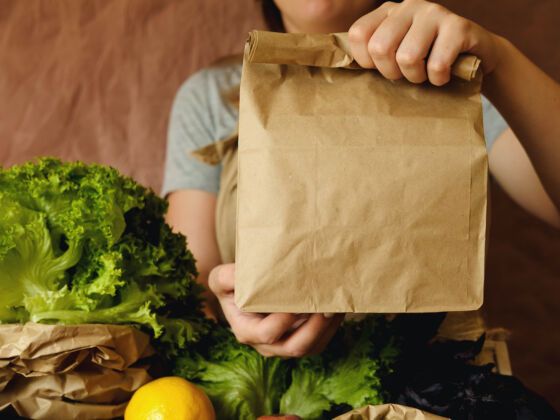For months, the COVID-19 pandemic had largely sidelined the topic of single-use bags and containers. New York delayed implementing its plastic bag ban until October, and California has suspended its plastic bag ban. Then New Jersey decided to strike a different tone. Last week, the state legislature voted to pass a ban on both plastic and paper single-use bags in grocery stores, which also includes a ban on single-use plastic bags in stores and restaurants and similar restrictions on polystyrene products in certain cases.

Paper Bags Are Not a Sustainable Alternative to Plastic. Here’s Why New Jersey Voted to Ban Them.
Jeff Tittel, director of the New Jersey Sierra Club, told The New York Times that the bill is “the strongest, most comprehensive bill in the nation” when it comes to reducing plastic waste from grocery stores and restaurants.
The thing is, New Jersey also included single-use paper bags in the ban — which after Governor Philip D. Murphy signs the bill will make the state the first to do so. You’re not alone if the report left you wondering, “Why would they also ban paper bags?”
To be sure, paper bags are far less environmentally catastrophic than plastic bags, even if only because they can often be recycled and at worst, break down far more quickly (if the conditions are right). But paper bags are no environmental fairy tale. Let’s look into why environmental activists including the Sierra Club have pushed to New Jersey to place these grocery store staples on the chopping block.
Paper bags take more energy and water to produce than plastic bags
Before their useful life, a lot goes into producing paper bags. According to scientific studies, it takes four times the amount of energy to produce a paper bag than to produce a plastic one, and paper bags generate much more air pollutants during production than plastic bags. Paper also takes more water to produce than plastic and though plastic bags require the extraction of fossil fuels, the consistent use of paper bags requires the consistent slaying of trees — one of the most important warriors in removing harmful greenhouse gases from the atmosphere.
Even when recycled or composted, paper bags are still a single-use product
Analyzing the data on which type of single-use bag is more harmful to produce or destroy is pointless in environmental terms when the easiest solution is right in front of us — reusable bags. Even the most sustainably produced paper is still paper — it’s not going to last a lifetime or even a season, meaning it will have to be replaced. From a sustainability standpoint, the “lesser of two evils” approach to using paper bags isn’t valid — any single-use product is part of the problem.
Reusable grocery and tote bags are available and affordable. There’s no excuse not to keep a few on hand and to actually use them when you go to the store. When shopping for reusable bags, look for organic cotton or bags made from recycled materials, such as recycled plastic or paper. If available, buy bags made from jute, a plant fiber that is actually more sustainable to harvest and process than organic cotton.
At Matador Network, we’re all for civic discourse and rigorous public debate. But the “paper or plastic” conversation is one we firmly support opting out of entirely. It’s easy to do — keep a couple of reusable bags in your vehicle, backpack, bicycle pannier, or whatever carrying case you bring with you when leaving your home. You’ll never have to answer the question again.